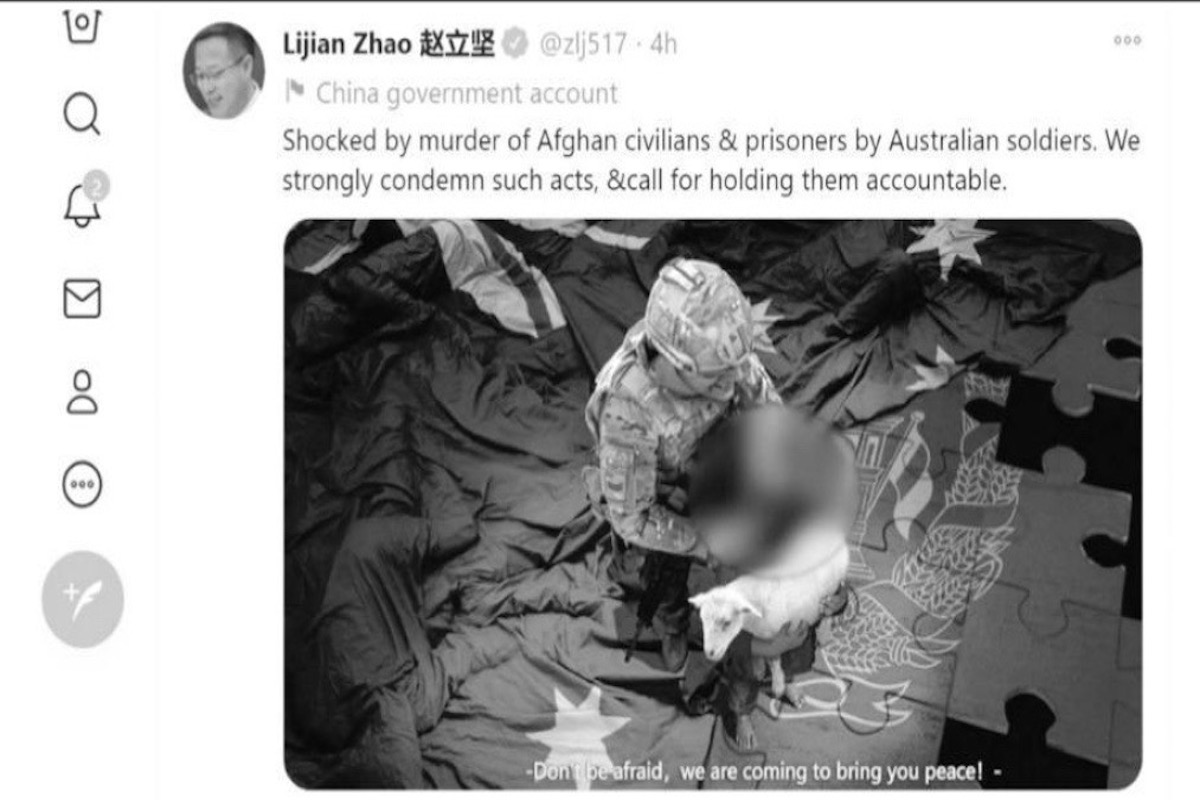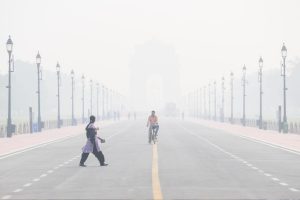The latest conflict between China and Australia over satirical cartoons, related to the publication of reports on war crimes by Australian special forces (SAS) while serving in Afghanistan (2009-2013), presents a portrait of the two opposing parties on their commitment to upholding human values in the context of democracy and human rights.
The conflict stems from a Chinese satirical cartoon tweeted by a Chinese diplomat, Zhao Lijian, in condemning the war crimes committed by Australian troops against 39 civilians and Afghan prisoners and calling for accountability for the brutal act. The reason is based on a commitment to uphold human dignity universally, especially freedom of expression in democracy and respect for human rights. Isn’t that a commitment to values that have been highly respected and exalted by Western countries, including Australia?
Advertisement
It is surprising that Australia and its allies have responded so harshly. The Australian Prime Minister, Scott Morrison, stepped in immediately to denounce the satirical cartoon tweet, judging it as fake and evil, and demanding an apology from China. France defended their allies and issued condemnation. There were also broad pros and cons views in the mass media in response to the incident.
The criticism from Australia and its allies has sparked a backlash not only from China but also voices from the Afghan side. The backlash came from one of the creators of the satirical cartoon “Wuheqilin”. “Morrison should not take his anger out on Zhao (Lijian), or me, but at the crimes committed by Australian soldiers in Afghanistan.”
The Chinese Embassy in France condemned France because a country that claims to have inherited the spirit of freedom, equality and brotherhood joined Australia. “France condemns the war atrocities that rend and destroy civilians, but instead accuses those of those who criticize these atrocities, too. … Why is it that a country that strictly declares the ‘right to caricature’ cannot receive the same rights for young Chinese artists? Where the hell is this freedom of expression supported by France?”
The Afghanistan Times daily in its opinion stated that the war of words over the cartoon implies tragedy in its true sense, or rather ignorance of the killing of Afghan civilians. “The storm of anger did escalate after the Chinese satirical cartoon tweet, but it would be better for Australian officials to apologize to Afghanistan for the extrajudicial killings of innocent Afghan citizens in this inhuman war. … It is the Australian soldiers who are degrading their country’s image by killing innocent citizens in Afghanistan. … The best that Canberra can do is to investigate war crimes in the most transparent manner.”
Now, doesn’t the harsh reaction of Australia and its allies and no less violent backlash, especially voices from Afghanistan, reveal the attitudes and mindset typical of the Western double standard, especially Australia and its allies, in freedom of expression?
The Australian Department of Defense has publicly admitted in a report that several members of the Australian special forces (SAS) killed 39 civilians and Afghan prisoners, including children (two boys aged 14 years, among others, put into bags and thrown them into the river after slitting their throats) during 2009- 2013, in at least 23 murders. Australia considers these events to be sufficiently resolved through “ordinary justice” under Australian domestic law.
But are war crimes like these sufficiently resolved under such a “domestic trial model”? Isn’t this case categorized as a serious human rights violation, a crime against humanity? Shouldn’t it be resolved in a more precise scope, or rather the International Criminal Court (ICC)? What is the reason? Let us listen for a moment to the “third party” voice about the true horror facts behind war in the following “ordinary” sense.
Sahar Ghumkhor, a woman from the Afghan diaspora, lives in Australia and researches the intersections of race, gender and psychoanalysis. She said this, writing in Aljazeera, about something that represents the big picture of Australia’s war in Afghanistan and is therefore worth reading without blinking eyes:
“Australians continue to believe they are fighting a good war in Afghanistan, despite mounting evidence to the contrary. …
“Even when the horror of the war crimes was on full display and the sheer scale of the war crimes and depraved practices undeniable, white innocence was still desperately gasping for redemption.
“But what struck me the most as an Afghan living in Australia watching this fiasco unravel was how the coverage of the inquiry on Australian TV ended with the promotion of a mental health helpline for members of the military and their families. This, in a year of protests against uniformed men terrorising civilian populations and basking in impunity taking place around the world.
“The tone deafness was incredible and the narcissism – diabolical. …
“In “the heart of darkness”, these delineations do not really mean anything, they are mere cloaks for monsters and the nations that birth them. For many Afghans, this is the real revelation of the Australian inquiry.”
Meanwhile, the Afghan Foreign Ministry stated on its website that it was working with the Australian government to investigate the wrongdoing of Australian soldiers in Afghanistan to ensure the perpetrators were identified and brought to justice.
According to the former Afghan ambassador to China, Sultan Ahmad Baheen, the actions of Australian soldiers killing Afghan civilians should be condemned. China’s criticism of the brutal behavior of Australian soldiers in Afghanistan was also hailed by the Afghanistan Times as a ‘good example’. “China is a powerful country that definitely has influence in the region. Such actions would provide guarantees that no other country will follow crimes like those committed by the Australian army.”
From the facts above, the following interesting messages can be learned. First, the need to uphold democracy without a double standard bias, either for reasons of national sovereignty or other reasons that are obscure in nature. Learning from the spirit of Western democracy from its embryo beginnings in classical Greek and Roman political traditions to the present day, one of the elements that is upheld is the value of freedom of expression. The media can be of various kinds, through oral expressions such as speech and statements as well as debates and polemics, or through non-verbal expressions such as writing and fine arts and performing arts, including in the form of caricatures that carry subtle satirical and sarcastic messages.
In this context, Australia as one of the inheritors of such a noble Western tradition need not actually be offended by the Chinese satirical cartoons as long as freedom of expression is not understood in terms of double patterns and standards.
As long as Australia is able to take lessons without the bias of double standards, about human values in the context of freedom of expression and universal respect for human rights, it is believed that the recent conflict will soon be resolved.
The writer is a researcher at the Sintesa Study Circle, Indonesia.











